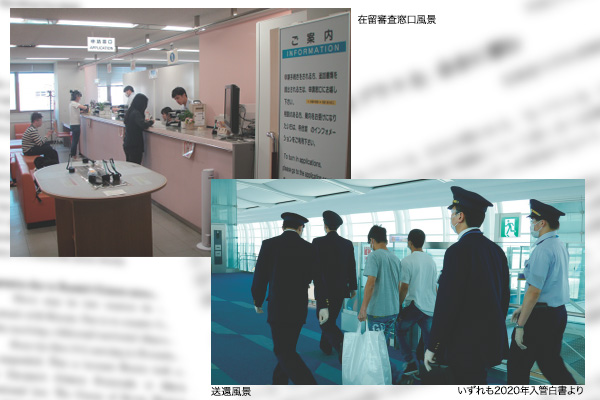At Japan’s parliament, ruling and opposition parties have been fiercely confronting with each other on a revision to the Immigration Control Act that sets rules on the treatment of foreigners who do not accept their repatriation even after receiving deportation orders.
In December 2018 when the act was revised last time to expand Japan’s acceptance of foreign workers, the Japan Institute for National Fundamentals had a sense of crisis about a rapid increase in permanent Chinese residents in Japan and called for toughening conditions for permanent residence permits. The House of Councilors shared the sense of crisis and attached to the revision a resolution calling for tougher screening for permanent residence permits before passing the revision.
Regrettably, the pending revision to the Immigration Control Act failed to give consideration to the resolution. Any foreign resident policy should consider both human rights protection and national interests.
Increasing foreigners refusing to be deported
I cannot but to say that discussions on the pending Immigration Control Act revision have lacked consideration to national interests. Most of mass media have reported so-called human rights advocates’ comments against the revision. (Surprisingly, the Tokyo Bar Association in 2020 recommended that working visas be given to all foreigners refusing to be deported.) However, human rights advocates’ comments alone cannot provide a whole picture of the issue.
The reason for the revision is that there is no end to the number of foreigners who refuse to be deported after receiving deportation orders, and this state of things has become a factor for prolonged detention, as explained by Justice Minister Yoko Kamikawa.
According to the Justice Ministry, the number of foreigners refusing to be deported from Japan came to about 3,100 (including about 250 detained, about 2,440 on provisional release and about 420 at large and on the wanted list) at the end of February 2020. Of them, about 490 had been sentenced to more than one year in prison and about 540 had filed for refugee status for three times or more. The number of detainees has been rising, standing at 1,494 (including 704 detained for six months or more) at the end of June 2018, up some 50% in five years from 914 at the end of 2013. Medical expenses for detainees doubled from 123.23 million yen in 2013 to 244.19 million yen in 2017.
Humanitarian consideration given
The pending revision would allow the government to deport those who are in the filing process for refugee status for the third time to help prevent foreigners from abusing filing to dodge deportation and would establish penalties for preventing foreigners from running away while overstaying visas. The revision would also set up a system for protecting those who are denied refugee status but have humanitarian reasons to be protected, demonstrating humanitarian consideration.
Japan has been criticized for its lower refugee status recognition rate than Western countries, but the lower rate does not necessarily indicate Japan as inhumane because Japan is an island country differing from those that share land borders with foreign countries. Even the current system features humanitarian consideration allowing the justice minister to provide some overstaying foreigners with special permission to stay in Japan. In 2019, 1,448 persons or more than 60% of those challenging deportation order were given the special permission. A Sri Lankan woman, whose death during detention has been sensationally reported, entered Japan with a student visa and lost visa status by failing to pay tuition, becoming an illegal resident.
Tsutomu Nishioka is a senior fellow and a Planning Committee member at the Japan Institute for National Fundamentals and a visiting professor at Reitaku University.


